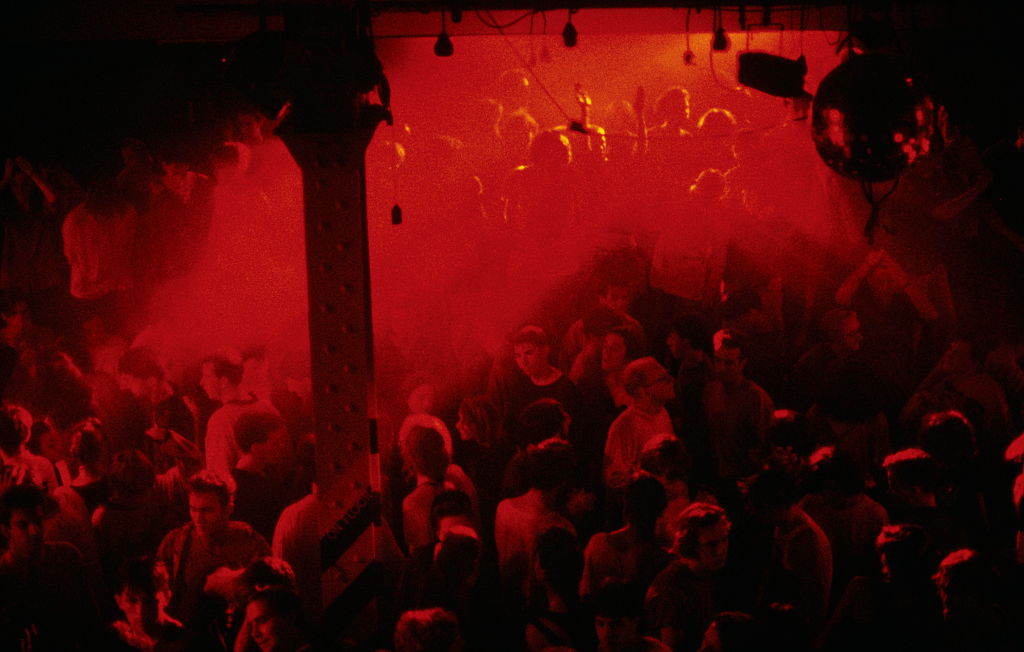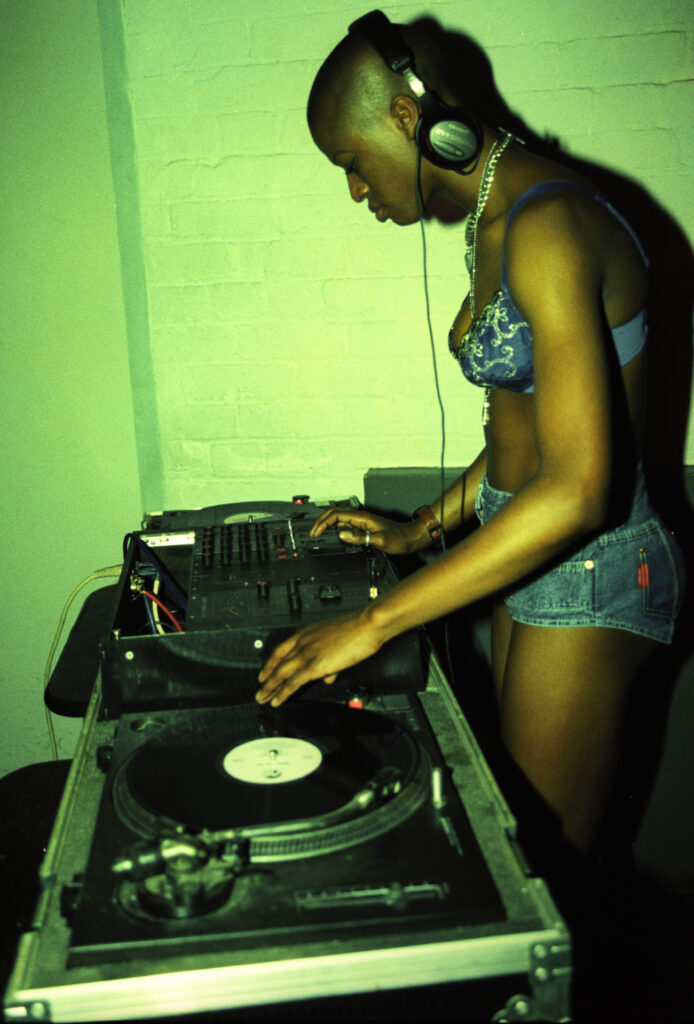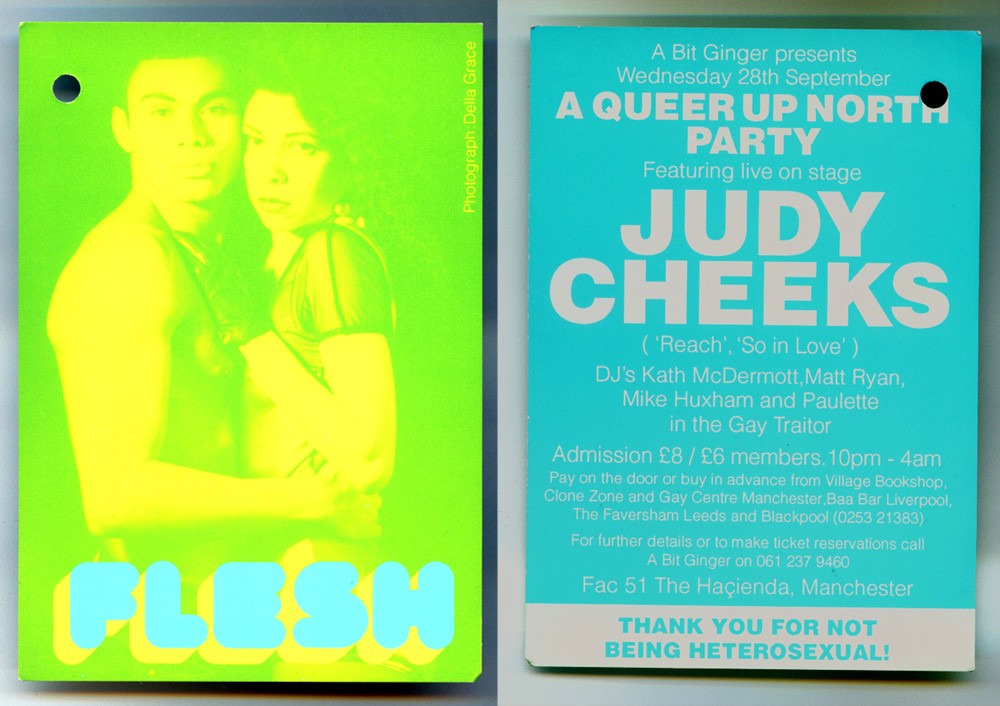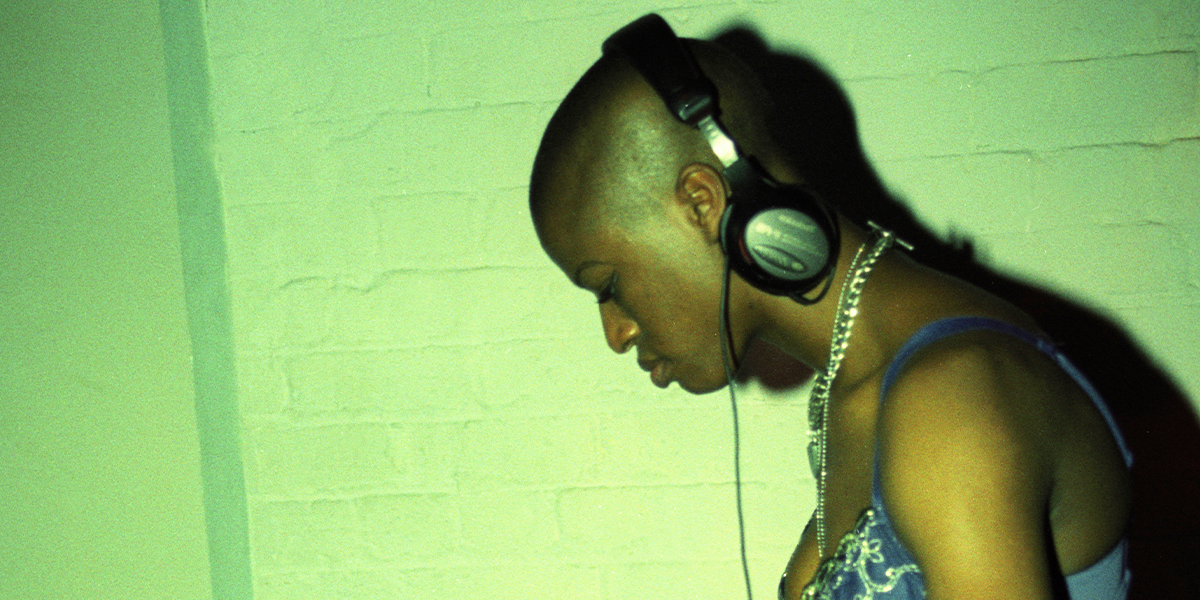Paulette is a Manchester-made, globally renowned DJ whose career spans nearly three decades in the industry. She’s had residencies at some of the biggest clubs in the world including The Haçienda, the Ministry of Sound, Mix Club, and Ibiza Rocks – to name just a few.
She talks to Cutler and Gross about her legendary career and discusses her thoughts and experiences around the After Party.
CG: In your twenties, you made history as the Haçienda’s first female DJ [playing at the LGBTQ night ‘Flesh’ in 1992]. How did that come about and what was that experience like for you?
PC: DJing wasn’t my first job in the music industry, I started off working in radio and then singing in bars. One day, a friend of a friend was running a party at The Number One in Manchester and asked if they knew anyone who could play. I had never DJ’d before, but I think my contact was desperate (she had spent all her money on hiring the club and printing the flyers), so I was offered the spot. It felt like a no-brainer for me. A little while later, Paul Cons and Lucy Scher decided to take ‘Flesh’ from The Academy to The Haçienda. They gave me a shot, and I ended up staying pretty much until the end.
I really did learn on the job. I didn’t have decks at home, it was 1992 and DJing wasn’t the cool job that it is now, certainly not for women. All the DJs I followed were men. But it clicked and from there that was it.

CG: Was there anything similar on the scene at the time? Why do you think ‘Flesh’ was so well-received?
PC: ‘Flesh’ brought different tribes and club nights together. It was like a festival in one night – it hadn’t been done before.
In the early 90s in Manchester, gay nights were segregated – men went where men went and women went where women went. ‘Flesh’ brought the communities together. It was the first gay night that played cool house music. Being gay wasn’t encouraged in Manchester back then. What they did, putting it in the biggest, coolest club in the city on a Wednesday night, was revolutionary. It was such a fun, decadent party. It was brash, it was cool, the music was incredible, and the people were just amazing.
CG: What were people wearing to the club?
PC: It was high fashion, it was drag, homemade, customised, it was sewn yourself. The clubs were roasting so the less you wore the better. I was the queen of the bikini; I wore PVC ones or customised Wonderbras, and sequin knickers that I made myself. We wore whatever we had the confidence to wear.
CG: What about sunglasses?
PC: I always had to have them with me. Knowing how people partied in there… you were going to be blinded if you left the club without them. That was the other thing that ‘Flesh’ did that was ground-breaking for Manchester – it was the first club night to get a late license in the city (before that everything closed at 2am). ‘Flesh’ got a 4am license. So, you’d always have to remember your sunglasses because it was daylight by the time you left.

CG: Your debut book, ‘Welcome to the Club’ explores your career and shines a light on discrimination within the industry. What was it like to tell your story?
PC: The book doesn’t just deal with discrimination, it looks at the highs and lows, the pros and cons, the whole picture of DJing. It’s been a massive project for me. Through the chapters, I talk to people I’ve crossed paths with during my career, the likes of Paul Conns, Kath McDermott, Luke Howards, Giles Peterson and Norman Jay.
Behind the core values of peace, love, unity and respect, the dance music industry can be a place of exclusion, misogyny, racism, and classism. But, as I explore in the book it is also bursting at the seams with powerful women. So, I speak to people like Colleen ‘Cosmo’ Murphy, Smokin Jo, Jaguar, and Jamz Supernova about their experiences.
It’s not just my story, it’s my story told by many different people.
CG: If you could give one piece of advice to female DJs starting their career now, what would it be?
PC: Go for it – but make sure you get the same money as your male counterparts. The gender pay gap is still massive. There are still nowhere near as many female DJs as there are male, but don’t let that stop you.
CG: Our latest collection is inspired by the After Party – a space where ideas, music and conversations are exchanged. Has this been your experience?
PC: Magic happens at after parties, it’s where I made friends who are still my solid friends today. That’s thirty years and counting…

CG: Have you attended any particularly memorable after parties?
PC: Yes – some were definitely better than others! In the early days, after Flesh, we would decamp to India House for the after party. There was always a flat with an open door, music blaring, people gathering, chattering away in kitchens, living rooms and bedrooms or something crazy going on somewhere in that building! We always wore our sunglasses indoors. I took my mum to a couple of post-club chillouts there and she could never understand why people politely refused the sandwiches she made. Bless.
CG: And finally, what’s next for you?
PC: Well, the book is coming out in January 2024. Then there is a club project I am working on with the Haçienda, it’s under wraps at the moment. I am also doing lots for BBC 6 Music, so pushing that. I want my own show, I’m putting it out there.
‘Welcome to the Club: The Life and Lessons of a Black Woman DJ’ is available to pre-order here
Stay up to date with DJ Paulette’s projects and residences on djpaulette.co.uk
Listen to DJ Paulette’s Funky Acid Disco House playlist on the Cutler and Gross Spotify channel

